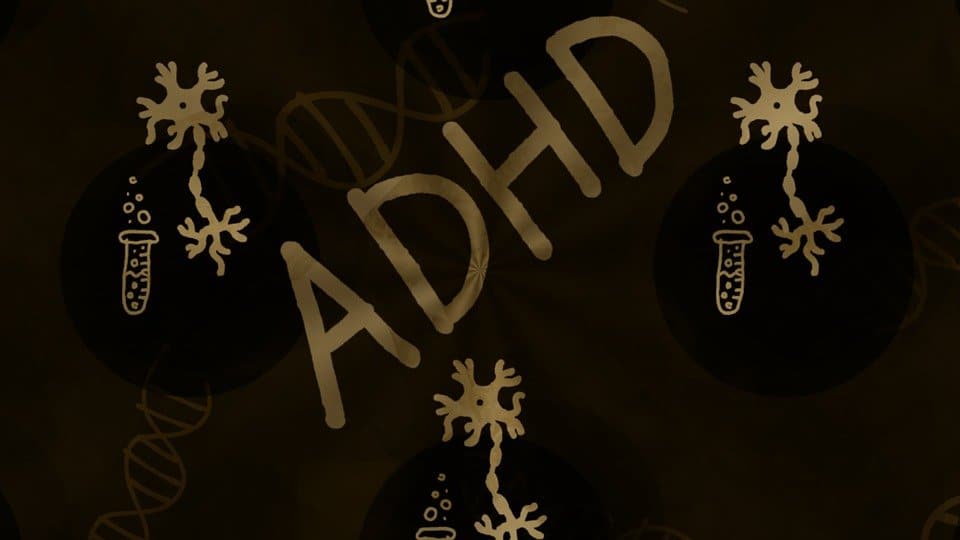Last Updated on July 25, 2022
Many people believe that Attention Deficit Hyperactivity Disorder or ADHD is a spiritual problem. But what does that mean?
For some, it may be a lack of humility and meekness in the individual – a sin that is going unchecked by confession or repentance. Some people may even feel guilty and assume that if they have ADHD, then God must have abandoned them.
Though a popular opinion for some, according to the National Institute of Mental Health, ADHD is not a spiritual problem but is rather a lifelong and a common neurodevelopmental disorder in children.
Still, others disagree and attribute ADHD as the result of bad parenting and from a lack of faith. This article will dive deep into what really is attention deficit and how to manage its symptoms from different perspectives.
What is Attention Deficit Hyperactivity Disorder?
Imagine having difficulty doing your daily activities because you can’t focus and you get easily distracted.
As much as you want to get things done correctly and on time, you just can’t seem to control yourself and just ends up getting frustrated instead.
These symptoms of ADHD are often misinterpreted as laziness by our society when the truth is that those who experience this are suffering from a condition.
Symptoms
Those with ADHD may find it difficult to stay focused on tasks and oftentimes these seem much harder than they are because their brain cannot focus on anything for an extended period of time.
Unfortunately, some parents and adults in the household don’t understand that what their child needs in their life is support in order to face their world and overcome the obstacles they face.
ADHD symptoms are divided into three types and these are:
1. Impulsive/Hyperactive Type
Regardless of age, anyone may suffer from ADHD. Each individual has their own unique symptoms that manifest themselves in different ways.
Children are normally active and energetic that’s why this condition tends to get over diagnosed. For some, the hyperactivity type might be mostly physical while for other children it could be more of a daydreamy state.
Symptoms under this type include:
- Has difficulty waiting for his or her turn
- Often interrupts others
- Fidgets or squirms in seats
- Runs about or climbs in inappropriate places (usually seen in kids)
- Tends to act without thinking
2. Inattentive Type
Characteristics under the inattentive type include:
- Often avoids or dislikes activities that require mental efforts
- Difficulty organizing tasks
- Usually lose things such as keys
- Often forgets tasks
3. Combined Type
A person with a combined type has symptoms of the other two types.
Being aware of this condition and understanding the person’s behavior is extremely helpful for a person with this condition. It is important that the acknowledgment and acceptance begin in their homes and their family.
If you think you or your child might have ADHD, it may be worth talking to your doctor about it.
Causes
What is the root cause of this condition?
There are many misconceptions about ADHD, including that it is caused by video games or that it’s just something that children outgrow.
However, the reality is that ADHD is a serious lifelong condition, and there are many factors that make individuals more susceptible to it.
- Genetics
- Environment
- Brain Injury
- Prenatal exposure to tobacco or alcohol
- Premature delivery
Attention Deficit Disorder in Adulthood
It can be difficult to diagnose ADHD in adults since symptoms may present in different ways as a person grows older. Nevertheless, this is usually diagnosed through testing, interviews, and evaluating the history of the person’s life.
Since some adults with this condition have never been diagnosed, symptoms in adults can be:
- Difficulty organizing and finishing tasks at work and home
- Poor time management skills
- Poor listening skills
- Getting bored frequently and seeking out new experiences
- Possible relationship problems
- Hyperactivity tends to show as restlessness in adults
Managing ADHD Symptoms
ADHD results from a chemical imbalance in the brain and can be treated with medication, therapy, or both. This disorder affects the central nervous system and affects people with varying grades of severity.
The good news is that there are effective treatments available for those with ADHD. Some people have even found comfort in the spiritual aspect of the disorder which helps them cope better.
Here are ways how to manage or control their behavior to help them cope with their day-to-day lives.
- Setting up a routine and structure of daily tasks
- Establishing healthy habits like eating healthy food, getting enough sleep, and exercising regularly
- Giving rewards when rules are followed
- Creating a list to avoid forgetting them
- Staying focused on one task at a time – don’t multi-task
Spiritual Perspective
Many people who are diagnosed with ADHD struggle with thoughts of low self-esteem, lack of direction, and feelings of emptiness – which could lead to depression if left untreated.
Although some people turn to unhealthy ways of coping which may include alcohol or drugs, spirituality offers an outlet for healing through community such as:
- Gain perspective and wisdom from Biblical passages regarding self-control
- Increase faith by listening to the teachings and words of God
- Adults modeling positive behavior
- Helping individuals control their thoughts
- Identifying positive qualities
Adjusting Behavior Through The Spiritual Journey
The idea that ADHD and spirituality are connected to each other is not new; however, it has been largely overlooked in the medical and psychological communities. It is important to remember that ADHD is a neurological condition, and as such, does not reflect a moral failure on the part of those diagnosed with it.
This does not mean that those with this disorder are morally unaccountable for their actions or behaviors; but rather that they simply have a brain-based difference that affects their other functions and how they process and respond to stimuli.
Moreover, the spiritual side truly offers a unique perspective on healing. The ability to seek and connect with God and having this belief for some can heal wounds of the soul that is beyond what science can do.



